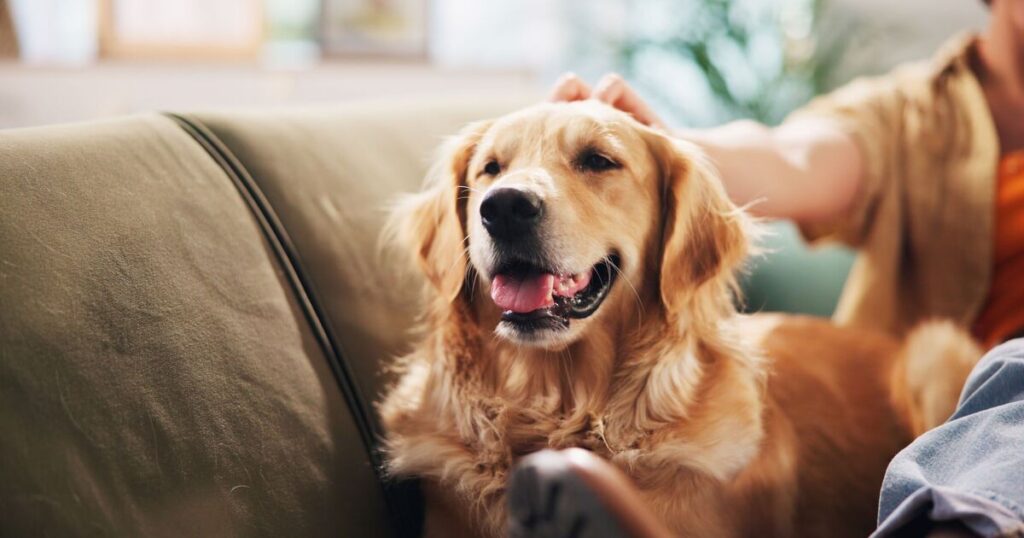
A dog rehabilitation expert shared how to discern whether your pet feels as though they’re part of your “pack”, or if certain habits have led them to feel like they’re the “alpha”.
Dogs are a highly popular choice of pet and, according to the PDSA, approximately 28% of UK adults own a dog, equating to an estimated population of 10.6 million pet dogs.
Most owners aim to have a well-behaved dog who feels like a member of the family. They’re a significant commitment as dogs require care, attention and affection for their entire lifespan.
Naturally, they’ll reward their owners with their renowned loyalty and devotion – if they know their place. At times, dogs can exhibit undesirable behaviour. They can act out or display traits that seem challenging to manage or control.
According to Diane Hart, a dog rehabilitator working in partnership with animal welfare charity The Pettifor Trust, this is always the owner’s fault and never the dog’s.
This is because dogs are “deeply sensitive” to their humans and their behaviour can “often mirror the owner’s temperament”.
In many instances, dogs act out when they don’t feel “secure” or sure of their place in your “pack” – and they need to be at the bottom.
Diane disclosed many dogs arriving in her care demonstrate issues directly linked to their previous home environments. Often, these are dogs “other rescue centres might deem too challenging”.
Many dogs exhibit symptoms such as “anxiety, reactivity, or withdrawal due to picking up on their owner’s mood or stress”.
Behavioural issues often arise from “a lack of consistent love and control within the household”. This can then manifest as “anxiety, nipping, pacing, and lunging at people”.
Diane pointed out many owners can inadvertently cause problems by treating their dogs “like human children”. She stressed dogs “need to understand their place at the bottom of the ‘pack’ to feel comfortable and secure”.
When a dog perceives itself as “the top of the hierarchy”, it might start to “assert dominance – even over children”, particularly if the parents are dominant “alphas” and the child is not, which could result in the dog challenging or “going after” anyone who interacts with the child.
Diane said: “I believe 100% a dog is a mirror image of yourself; if you are hyperactive, your [dog] will be the same.”
She further advised: “Don’t treat your dog like a child, you have to respect the dog for what it is. The dog, in order to be comfortable, has to be at the bottom of the pack. If you put them at the top of the pack, they will start bossing the kids around.”
Regarding training and leadership, Diane emphasised: “Owners need to learn to be a pack leader, by being consistent. Once the owner shows they can take control of their dog, the dog will listen”.
Social media has become a go-to resource for many seeking advice on dog training and how to manage their cherished companions.
Dog behaviourist Will Atherton has gained a loyal following on Instagram due to his expert advice on different breeds, as well as training techniques and guidance on addressing and preventing any unwanted behaviours.
 Latest World Breaking News Online News Portal
Latest World Breaking News Online News Portal






